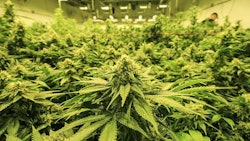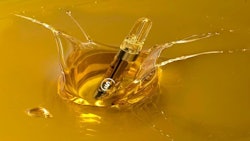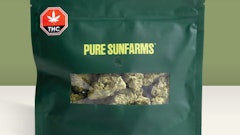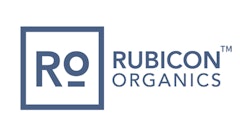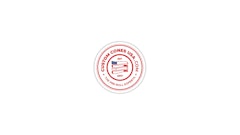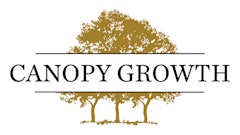When Cannabis 2.0 launched in Canada with the sale of cannabis edibles, beverages and vape products, Marshall Posner, chief marketing officer for vertically integrated licensed producer Delta 9, said the company wanted to do more to ensure cannabis packaging and waste was being dealt with responsibly.
While packaging for dried flower and other cannabis products can generally be recycled as part of Canada’s Blue Box recycling program, many vape products are designated as special waste and cannot be recycled in the same way, meaning that they often end up in landfills.
“As we’ve seen these products become more prevalent in our stores, we felt we needed to do something in a responsible fashion to help address … where this packaging and cannabis waste is ending up,” Posner told Cannabis Business Times and Cannabis Dispensary.
This led Delta 9 to partner with Canadian recycling company Emterra Environmental to create a sustainable recycling program for cannabis packaging and disposable vape pens, as well as a landfill diversion program for vape cartridges, to help the Canadian cannabis industry transition to a circular economy.
Emterra Environmental was founded 44 years ago as a Vancouver-based recycling company.
“Unlike some of our industry peers, we don’t see ourselves as a waste disposal company or a landfill operator,” said Paulina Leung, VP of corporate strategy and business development for Emterra Environmental. Her mother started the company, which has since grown to 1,100 employees, 15 recycling plants and over 800 trucks. “Our true core is to be a recycler and to help ensure any kind of material we extract from the earth gets to be used over and over again.”
Emterra Environmental has moved beyond its initial role as a recycling and waste management company, Leung said, and now works directly with companies, such as Delta 9, that want to take responsibility for their products and work to increase sustainability in the marketplace.
“That’s where we have a similar ethos with Delta 9,” Leung said. “We’re both vertically integrated companies in our respective industries, and instead of waiting for government to tell us what to do with cannabis packaging and vape products, we found each other and we created this customer program … to help Delta 9 continue to grow in a sustainable way.”
Delta 9 launched in 2013 as one of Canada’s original LPs, and currently operates eight retail stores across Manitoba, Alberta and Saskatchewan in addition to its cultivation operations. The company will open a ninth store next week and aims to open another 11 retail locations by the end of 2021.
“We think of ourselves as a socially responsible company, and we’ve participated in a variety of green initiatives or recycling programs that the industry has started and stopped over the past year and a half,” Posner said. “We were excited about this and it seemed like a good fit for us to restart or relaunch a new program that would ultimately be sustainable for the industry.”
Leung added: “We saw other programs in the industry come and go, and in seeing those programs come and go, we saw that there were opportunities and ways to make our program more effective, more efficient, and also more authentic.”
The first component of the program allows consumers to recycle cannabis packaging similar to Canada’s well-established Blue Box program, while a second component focuses on landfill diversion for disposable vape cartridges and vape pens.
“Of course, landfilling is absolutely the worst,” Leung said. “Things stay in landfills forever—it never decomposes. So, the second option was to recover the energy from the cartridges. That’s what makes our program unique.”
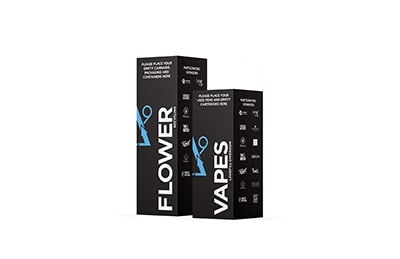
The program accepts cannabis packaging and disposable vape cartridges and vape pens from any licensed producer, regardless of brand. Consumers can simply bring their empty containers and vape products to any Delta 9 retail location and deposit them into boxes labeled “Flower – Recycling” or “Vapes – Landfill Diversion.”
Consumers are asked to wrap the vape cartridges in individual bags before putting them into the box to make it easier for the recycler to sort the cartridges from the pens, which ultimately increases recyclability, Leung said.
The contents of the flower recycling box will be picked up and delivered to ReVital Polymers’ plastics recycling facility in Sarnia, Ontario, where post-consumer plastics are processed into engineered resin products.
The collected vape pens and vape cartridges are processed at Emterra Environmental’s partner electronics recycling facility, where the pens are separated from the cartridges for processing. The battery, plastic and metal are recovered from the vape pens, while the cartridges are handled as special waste and sent to an energy-from-waste facility for processing. All of this happens domestically in Canada, and no waste is shipped abroad.
“When the recycling is full on our end, there’s a bag inside,” Posner said. “We take it, put it in a box and book a pick-up online from Canada Post, and that’s it. It’s a real simple process. I think that’s what I really like about this program. If you look at successful programs, they’re really quite simple. There aren’t all of these steps that you have to adhere to.”
Emterra Environmental and Delta 9 have created educational Q&As to display on their websites and in-store to help both consumers and Delta 9’s retail staff understand the process and why it is important.
In the several days since the program’s launch, online and in-store response has been positive, Posner said.
“Our customers have been asking us for months when we’ll be introducing vape recycling or some kind of a vape program or … recycling program for cannabis packaging,” he said. “I think for a lot of them, they’re like, ‘Oh, good, it’s about time.’”
The long-term success of any diversion program requires the industry to participate, Leung added, and she and Posner hope that other LPs will take notice and join in.
“Delta 9 certainly led this initiative and I really hope they have set the example and other LPs will join because when industry acts as a whole, not only will the program be more cost-effective for everybody, but it will also show government that they don’t need to regulate the industry from a waste management perspective,” Leung said. “Industry is taking responsibility for the end-of-life management of cannabis and vape products and packaging, they’re being proactive, and I think government appreciates that. From a compliance or government affairs perspective and from achieving a cost-effective program, industry working together will result in the best outcome for all the players.”
Creating packaging with circular end-of-life solutions is not a competitive issue, she added, and should instead be something that the entire industry collaboratively addresses.
“As soon as Marshall and I started talking, it was very like-minded,” Leung said. “We saw that the industry is growing very quickly, and sometimes when an industry is growing very quickly, some of the elements of sustainability take a while to catch up. … I hope this is a launching pad for a nationwide program that will be able to manage all the cannabis packaging, as well as the vape pens and the vape cartridges. … I really hope that the industry hears this call to action and works together.”
The partnership between Delta 9 and Emterra Environmental relies on shared expenses, which will ultimately contribute to the long-term viability of the program, Posner said.
“The packaging is as diverse as the types of products that are held in them, and on the spectrum of really recyclable to terrible [and] not recyclable, the packaging will fall anywhere on that spectrum,” Leung said. “What we want to do in this program is to take a look at each brand and each type of packaging available and to be able to give some analysis and recommendations to the LPs to say, ‘This type of packaging is really good—can you transition more of your packaging to this type?’ Then, we’ll also be honest and say, ‘This type of packaging is not good, so can we work together and find some other alternatives?’”
“This was important to our employees, it’s important to our customers, and quite frankly, we think it’s a responsibility of any company,” Posner added. “Whether [it’s] a cannabis company or another that is producing waste and putting waste into the marketplace, [it should] have a solution on the backend or at least contribute to a solution on the backend to help deal with the waste."







